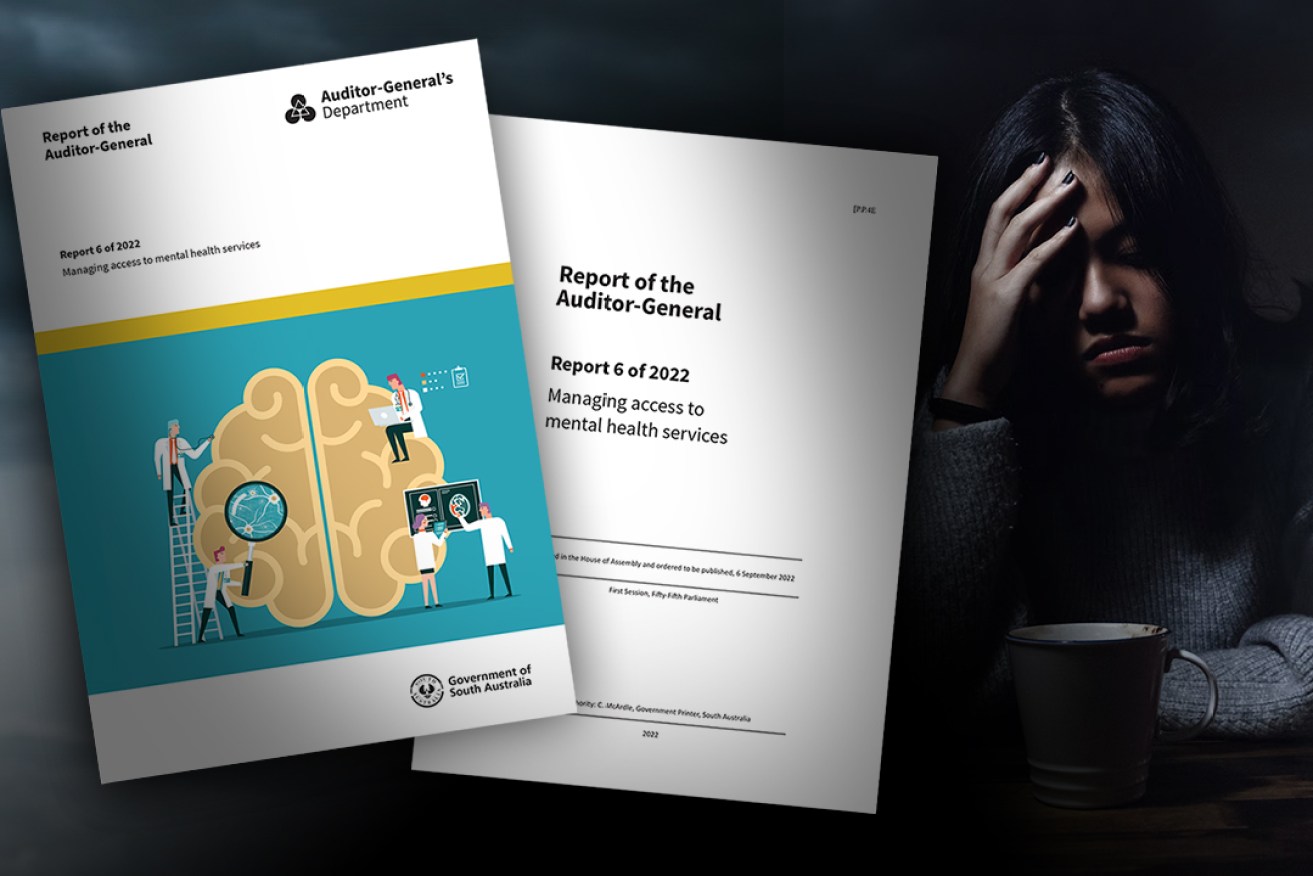‘Needs to improve’: SA mental health gaps exposed
The Auditor-General has outlined significant “gaps” in the state’s mental health services – including poor planning, monitoring and reporting – with increased demand during the pandemic exacerbating problems.


Image: Tom Aldahn/InDaiily
Auditor-General Andrew Richardson and his team conducted a major review, starting mid-last year, into how SA Health runs mental health services – including those delivered in hospitals – and found a litany of shortcomings.
The investigation assessed whether SA Health had “effective processes in place” for providing services, including what actions it took to deal with the impact of COVID-19 on mental health.
“We concluded that there are key planning, monitoring and reporting processes for the provision of access to mental health services that were not operating effectively,” the review found.
“Because of these gaps, SA Health is not able to demonstrate how well it is performing in providing the public with access to the right mental health services at the right time.”
The investigation report, tabled in State Parliament yesterday, stated that nearly half of all South Australians will experience a diagnosable mental illness at some point in their lives.
It identified key service gaps including:
- Planning documents had insufficient details on what success is and did not include strategies on how to address gaps in the demand for services. Also, outcome measures and reporting mechanisms were insufficient
- Ineffective processes to capture and analyse data on mental health services, limiting the ability to assess performance and outcomes
- Some reporting on access to mental health services not being timely and not highlighting gaps between services required and available
- The absence of an administrative framework outlining how the SA Mental Health Commissioners are to carry out their work, impacting their ability to deliver mental health initiatives
The reviewers acknowledged that in 2020 and 2021 SA Health prioritised responding to COVID-19 over progressing structural and process improvements.
“As the state now moves towards living with COVID-19, there is an increased emphasis on addressing service improvement priorities, including access to mental health services,” they stated.
“(The department) should consider the recommendations in this report when identifying and managing these service improvements.”
The report found performance targets for delivering mental health services in emergency departments “are not being achieved” and “there is no process to monitor, evaluate and report on initiatives in the state’s mental health strategic plan”.
It also found the “process for capturing data from NGO mental health service providers needs to improve”.
The investigators call for a sweeping review of strategies to identity gaps in mental health services, an overhaul of how data is collected and the establishment of a register to ensure changes to processes are implemented.
Health Minister Chris Picton said SA Health was now working with the Auditor-General to improve mental health services across the state.
He said the Government acknowledged the issues and was delivering a $294 million investment to ease pressure on the state’s hospitals and provide better mental health treatment for patients.
“This report is just more evidence that the former Liberal Government left our mental health services under pressure, poorly governed and in need of reform,” he said.
“The Liberals were all too ready to release glossy documents without the resourcing or plan to deliver better services, which the Auditor-General has made clear.
“We want to increase capacity and fix the problem. That’s why we’ve committed to the most significant mental health investment in a generation, opening more than 120 mental health beds and boosting staff.”
Opposition mental health and suicide prevention spokesperson Tim Whetstone said Labor’s “insistency to play the blame game simply fails those who need better mental health services”.
“The former Liberal Government came into office with no mental health capacity because of Labor’s failure to implement crucial staff and support services,” he said.
“We acted quickly to reignite the SA Mental Health Services Plan, and instated the nation’s first Suicide Prevention Act.
“My attention is focused on the post-pandemic requirements and the pressures on everyday South Australians.”
In a statement, Chief Psychiatrist Dr John Brayley said “we welcome the findings of the Auditor-General”.
“The report comes at the time of significant extra funding to mental health with multiple projects planned or commencing across the system, and findings in this report are timely in setting expectations for work currently underway or about to commence,” he said.
“A major change already underway has been to automate internal performance reports. Our key planning tool, which provide details of volumes of services required, will be used to describe the access gap between what is optimal and what is currently provided – this will be published in revised planning documents and will meet the audit’s expectation.
“As noted in the responses to the Auditor-General, we will work to update planning documents, set targets for performance indicators where one does not exist, and provide the yearly implementation plan.
“South Australia is also participating in recently commenced national work to develop new key performance indicators and consistent measures across the country, which will ultimately meet a number of the recommendations from the audit.
“The Office of the Chief Psychiatrist will also work with Wellbeing SA to make clear the roles of the Mental Health Commissioners noting that a statutory basis for their roles is now under consideration in the SA Mental Health Act Review.”




